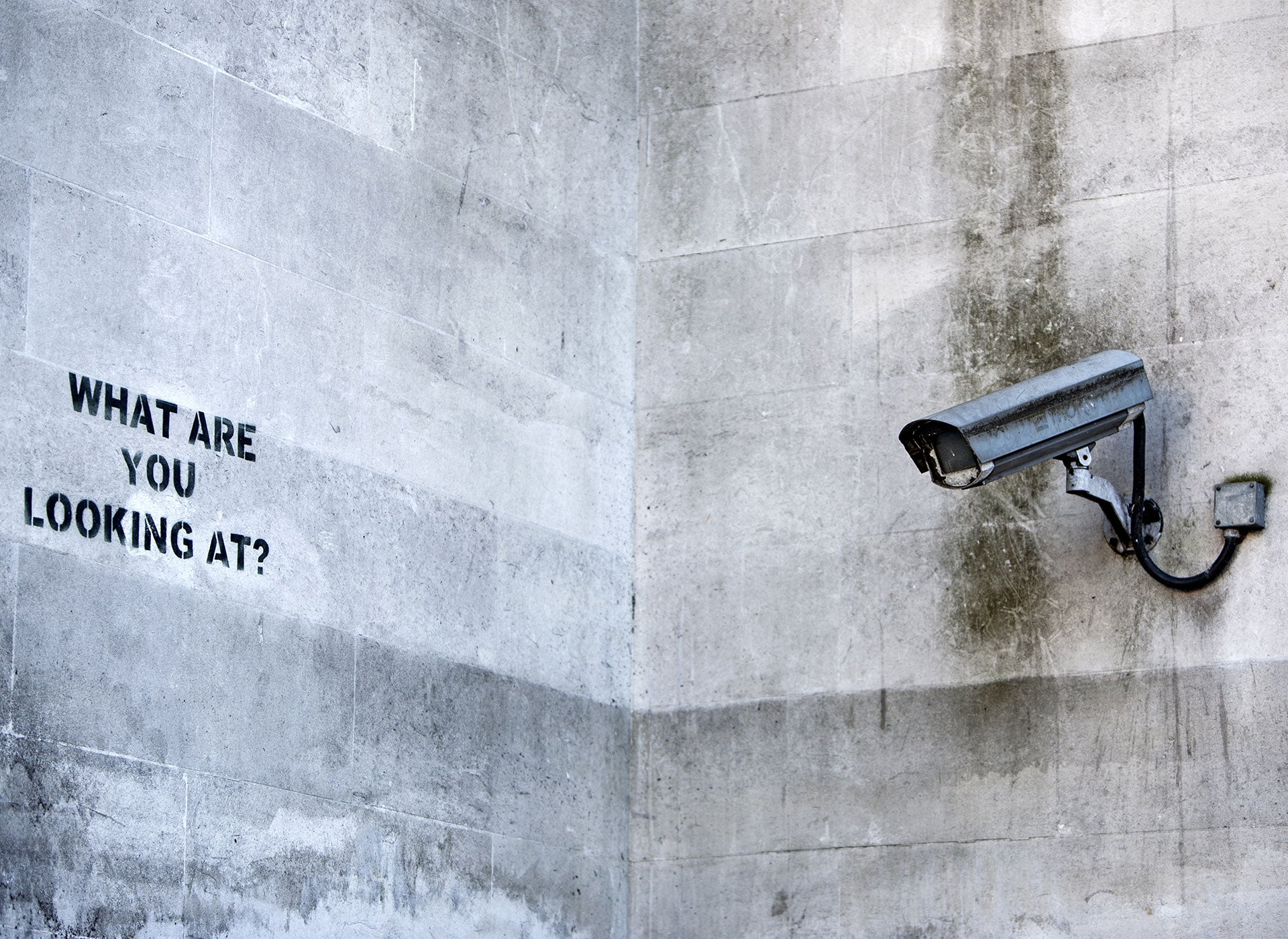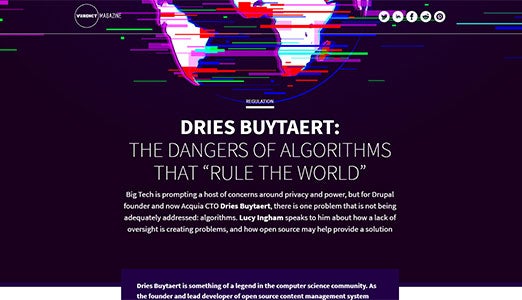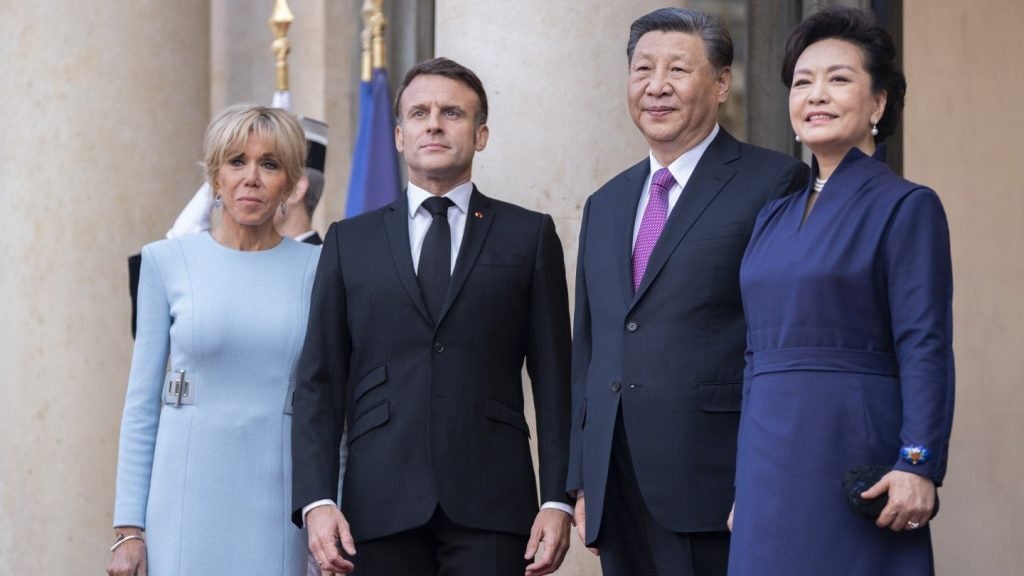
Good morning and welcome to Tech Report Weekly for 5 October. This week in tech we’ll see a strong focus on ideas, with the world beginning to look to rebuilding in the new normal of a digital-leading world.
The UK government will continue its investigation into the reliance on tech for a post-Covid recovery with a key evidence session, while in the US Fast Company will hold its online innovation festival, with top-tier speakers including Malala Yousafzai and Novartis CEO Vasant Narasimhan. Plus we’ll also see how the art exhibition is embracing online with the launch of a virtual showcase of Banksy’s work.
In this week’s Spotlight we explore the growing issue of employee monitoring technology – including the question of regulation, while the Verdict team has also highlighted top technology journalism and highlights from out own reporting.
Have an excellent week and we hope you enjoy our Tech Report Weekly.
Three things happening in technology this week
UK considers tech’s role in post-Covid recovery
What’s happening: The UK government’s Post-pandemic economic growth: Industrial Strategy committee will hear evidence from tech experts.
Why it matters: The UK government is betting heavily on the technology industry to help it thrive following both the Covid-19 pandemic and Brexit, particularly in terms of innovation and the generation of wealth and jobs. This committee is designed to assess whether those plans are realistic and viable – and whether the supporting incentives and funding are appropriately targeted.
How well do you really know your competitors?
Access the most comprehensive Company Profiles on the market, powered by GlobalData. Save hours of research. Gain competitive edge.

Thank you!
Your download email will arrive shortly
Not ready to buy yet? Download a free sample
We are confident about the unique quality of our Company Profiles. However, we want you to make the most beneficial decision for your business, so we offer a free sample that you can download by submitting the below form
By GlobalDataThe latest formal meeting will hear evidence from key representatives on the issue, including Anthony Walker, deputy chief executive officer of techUK and Stephen Phipson chief executive of Make UK, that is likely to be integral to the committee’s recommendations.
How to follow it: The session will begin at 10am on Thursday 8 October, and will be available to livestream on the government’s website. We’ll also be providing coverage on verdict.co.uk.
Positive innovation with Fast Company
What’s happening: Fast Company will this week be tackling the topic of “innovation for good” at its inaugural virtual Fast Company Innovation Festival.
Why it matters: With the world building the future normal of the post-Covid world, innovation is a hot topic across almost every industry. However, with rapid change being implemented by many, the potential for unforeseen negative impacts is rising. Fast Company is attempting to shine a light on innovation that brings positive change, with key innovators, makers and leaders.
Key speakers will include actor Robert Downey Jr, Malala Yousafzai and Novartis CEO Vasant Narasimhan, with keynotes, virtual visits and panels among the sprawling virtual event.
How to follow it: The event will run from 5 – 9 October, with tickets available from Fast Company. We’ll also be providing coverage on verdict.co.uk.
Banksy works shown in virtual gallery
What’s happening: The works of street artist Banksy will be brought together in a new virtual and physical exhibition, Catch Me If You Can.
Why it matters: Hosted by ARTCELS and the HOFA Gallery in London, the event will not only bring together rare Banksy prints never before displayed together, but provide a showcase for how the art market can thrive at a time of social distancing.
Visitors to the gallery will be able to view the collection in person, while it will also be able to view and explore online through a virtual exhibition.
How to view it: The exhibition will launch online on 8 October, and run until 15 October.
From the magazine:
Dries Buytaert: The Dangers of Algorithms that “Rule the World”
Big Tech is prompting a host of concerns around privacy and power, but for Drupal founder and now Acquia CTO Dries Buytaert, there is one problem that is not being adequately addressed: algorithms.
Spotlight on: Remote working surveillance
In the UK, the return to the office has been hastily reversed with the rise of the second wave. ‘Back to work’ messaging has once again become ‘stay at home’ and employers are now being warned that they should expect another six months of remote working.
For many businesses, the initial damage control approach of running a business under lockdown is being replaced with a new normal mentality. Projects that were on hold are being readdressed, and digital transformation projects are being embraced not with the harried panic of the early lockdown, but with an enthusiasm and confidence of embracing the emerging age.
As part of this, employers are increasingly looking for digital proxies to their in-office managerial approaches, and just as Zoom has replaced the in-office meeting, technology is offering solutions to the watchful eye of the team leader.
From technology that takes screenshots at regular intervals to software that tracks keystrokes, the employee monitoring technologies available to companies are wide-ranging and proliferating. Designed to monitor productivity and give companies the insight they need to effectively manage employees remotely, there are strong cases for their use, particularly with employees who find the home environment less productive than the formality of their office.
However, there are also very real and legitimate concerns about their use. The union Prospect, which represents engineers, managers and scientists, last week published the results of a survey on the technologies, which showed deep concern and discomfort among members.
80% said they would feel uncomfortable with the use of camera-based monitoring, while 66% had similar concerns about keystroke monitoring. 48% also said such technologies would harm their relationship with their manager.
Trust is key to these concerns, but there is also the issue of the creep of the workplace into the home. Prospect has expressed fears that the already strained delineation between work and home life will be further damaged by the use of these technologies, and has called on the government to put in place regulation to prevent their over-use.
Whether such regulation emerges remains to be been, but for businesses considering the technology, moderation and employee trust is essential.
– Lucy Ingham, editor in chief, Verdict
Last week’s highlights:
Cyberattacks in space: McAfee warns of satellite security risks
Capital on Tap: How tech is helping small businesses during the pandemic
Uber regains London licence from TfL, declared “fit and proper”
Quote of the week:
“Traditional banks have a long way to go to catch-up with tech-driven challenger banks and fintech firms, which are intrinsically much greener and are leading the charge to a paperless future.”
– Nigel Green, CEO and founder of deVere Group, on the surge in interest in challenger banks that Brexit has prompted.
What the Verdict team has been reading
How Trump’s attempted WeChat ban would devastate Chinese American families like mine
Rita Wenxin Wang explores the profound and deeply personal impacts of Donald Trump’s ban on Chinese chat application WeChat in this piece for Vox.
– Lucy Ingham, editor in chief
Wired’s Gian Volpicelli explores how the dangerous QAnon conspiracy Theory has made its way to the UK .
– Ellen Daniel, senior reporter
Trump’s Supreme court nominee is predicted to follow the Republican party’s pro-business ethos, but she could be a wildcard when it comes to the tech industry, as Emily Birnbaum points out for Protocol.
– Peter Nilson, associate editor






